Respect for your privacy is our priority
The cookie is a small information file stored in your browser each time you visit our web page.Cookies are useful because they record the history of your activity on our web page. Thus, when you return to the page, it identifies you and configures its content based on your browsing habits, your identity and your preferences.
You may accept cookies or refuse, block or delete cookies, at your convenience. To do this, you can choose from one of the options available on this window or even and if necessary, by configuring your browser.
If you refuse cookies, we can not guarantee the proper functioning of the various features of our web page.
For more information, please read the COOKIES INFORMATION section on our web page.


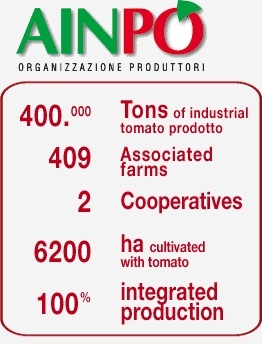 As of September 30, as confirmed by Luigi Sidoli, director of Ainpo (Associazione Interprovinciale Produttori Ortofrutticoli), the data provided by the interbranch organization Pomodoro Industria Nord Italia, of which Sidoli is also vice-president, indicated that deliveries amounted to 90% of contracted quantities: "We have reached our target with difficulty, an important fact that shows that despite adverse conditions, results have been satisfactory, and this is an expression of the skills of the sector and the historical professionalism of Piacenza producers."
As of September 30, as confirmed by Luigi Sidoli, director of Ainpo (Associazione Interprovinciale Produttori Ortofrutticoli), the data provided by the interbranch organization Pomodoro Industria Nord Italia, of which Sidoli is also vice-president, indicated that deliveries amounted to 90% of contracted quantities: "We have reached our target with difficulty, an important fact that shows that despite adverse conditions, results have been satisfactory, and this is an expression of the skills of the sector and the historical professionalism of Piacenza producers."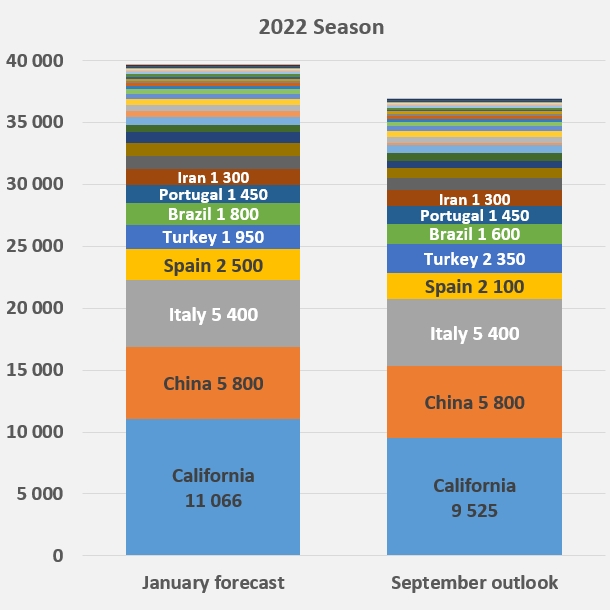 This observation is shared by Dario Squeri of Steriltom, one of Italy's leading processing companies. "The markets are very receptive," explained Squeri, "because production in Spain, our main competitor, has collapsed due to the drought. California has also greatly reduced its production, and there is a strong market demand. Tomatoes are a mainstream base product, like pasta, but an increase in selling prices is becoming inevitable because we have had to face increases of more than 25%, and much higher still for fuel and energy, which are a burden to 'energy-intensive' companies like ours. Fortunately, in Piacenza, we can count on a specialized industry that 'stands its ground', thanks to its historical implantation and its professionalism, which is constantly updated from a technological point of view, helping it understand how to overcome obstacles of all kinds. For us too, in Northern Italy, a drop in production of more than 10% is being considered, mainly due to the high temperatures that disrupted the blossoming of late varieties and the rains that then slowed the ripening process. In practical terms, we had to run in August with simultaneous peaks of ripening, then the situation was reversed in September, with a drop in Brix after September 10. But our industry has once again shown great professionalism and we saved the day."
This observation is shared by Dario Squeri of Steriltom, one of Italy's leading processing companies. "The markets are very receptive," explained Squeri, "because production in Spain, our main competitor, has collapsed due to the drought. California has also greatly reduced its production, and there is a strong market demand. Tomatoes are a mainstream base product, like pasta, but an increase in selling prices is becoming inevitable because we have had to face increases of more than 25%, and much higher still for fuel and energy, which are a burden to 'energy-intensive' companies like ours. Fortunately, in Piacenza, we can count on a specialized industry that 'stands its ground', thanks to its historical implantation and its professionalism, which is constantly updated from a technological point of view, helping it understand how to overcome obstacles of all kinds. For us too, in Northern Italy, a drop in production of more than 10% is being considered, mainly due to the high temperatures that disrupted the blossoming of late varieties and the rains that then slowed the ripening process. In practical terms, we had to run in August with simultaneous peaks of ripening, then the situation was reversed in September, with a drop in Brix after September 10. But our industry has once again shown great professionalism and we saved the day."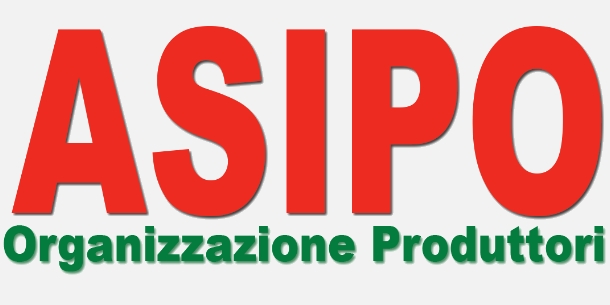 Afro Morsia, from the As.I.P.O. (Associazione Interprovinciale Produttori Ortofrutticoli Società Agricola Cooperativa), also concurs with the opinions expressed: "Tomato has been a good quality crop in terms of health, Brix, color and firmness, at least during most of the campaign, with some periods of grouped ripening that created some small problems in deliveries, but nothing too serious. Obviously, production techniques and the professionalism of our members have facilitated these good results, despite the unfavorable conditions that increased production costs as a result of the rise in raw materials and energy prices. But markets are expected to be buoyant."
Afro Morsia, from the As.I.P.O. (Associazione Interprovinciale Produttori Ortofrutticoli Società Agricola Cooperativa), also concurs with the opinions expressed: "Tomato has been a good quality crop in terms of health, Brix, color and firmness, at least during most of the campaign, with some periods of grouped ripening that created some small problems in deliveries, but nothing too serious. Obviously, production techniques and the professionalism of our members have facilitated these good results, despite the unfavorable conditions that increased production costs as a result of the rise in raw materials and energy prices. But markets are expected to be buoyant."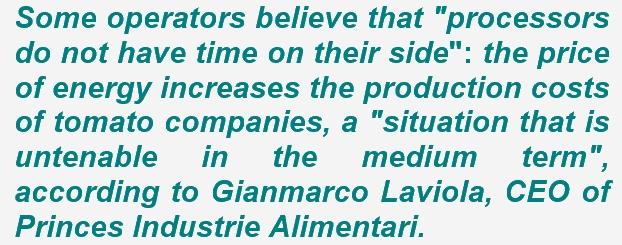 "2022 has been a special year, characterized by critical issues at various levels and unprecedented challenges related to rising costs for raw materials and energy," says Laviola. "Added to this was a reduction of about 20% in the hectares dedicated in 2022 to tomato cultivation. These difficulties have affected production costs, which, despite advance purchases of materials and inputs, have increased by about 40% this year." These words are particularly relevant, as they are expressed by an industry giant that employs more than 500 employees throughout the year and more than 1,200 workers in season, and reported a turnover at the end of 2021 of about EUR 1.8 billion (value 28 September 2022).
"2022 has been a special year, characterized by critical issues at various levels and unprecedented challenges related to rising costs for raw materials and energy," says Laviola. "Added to this was a reduction of about 20% in the hectares dedicated in 2022 to tomato cultivation. These difficulties have affected production costs, which, despite advance purchases of materials and inputs, have increased by about 40% this year." These words are particularly relevant, as they are expressed by an industry giant that employs more than 500 employees throughout the year and more than 1,200 workers in season, and reported a turnover at the end of 2021 of about EUR 1.8 billion (value 28 September 2022). "We remain in a scenario where we are reacting to whatever arises, where every week that passes with increasingly expensive energy weakens the defenses of the sector's operators, especially the smaller ones that are less robust in terms of facing the vagaries of the market. We expect very strong repercussions on the sector if the increase in costs is not absorbed by the selling prices or covered by government initiatives", underlines Laviola. At the same time, PIA has been implementing a multi-stage energy efficiency program since last year, which initially included the installation of a cogeneration system to provide electricity for processing the product. The system reduces energy requirements and at the same time reduces CO2 emissions by eliminating the energy dispersion typical of a large grid. Projects to recycle production waste also support sustainability: the company recycles green waste, spent grain and other processing byproducts into raw materials for biogas production and animal feed. "However, these solutions are not sufficient to deal with current exceptional circumstances," says Laviola.
"We remain in a scenario where we are reacting to whatever arises, where every week that passes with increasingly expensive energy weakens the defenses of the sector's operators, especially the smaller ones that are less robust in terms of facing the vagaries of the market. We expect very strong repercussions on the sector if the increase in costs is not absorbed by the selling prices or covered by government initiatives", underlines Laviola. At the same time, PIA has been implementing a multi-stage energy efficiency program since last year, which initially included the installation of a cogeneration system to provide electricity for processing the product. The system reduces energy requirements and at the same time reduces CO2 emissions by eliminating the energy dispersion typical of a large grid. Projects to recycle production waste also support sustainability: the company recycles green waste, spent grain and other processing byproducts into raw materials for biogas production and animal feed. "However, these solutions are not sufficient to deal with current exceptional circumstances," says Laviola.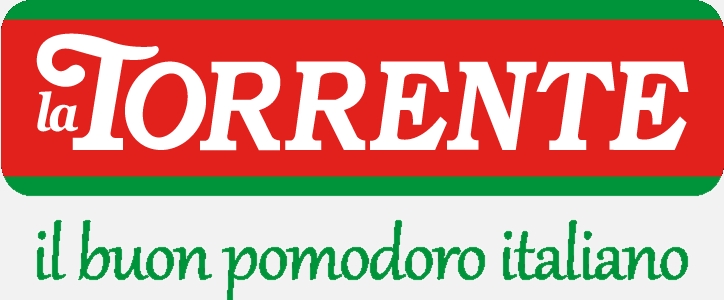 "More demand than available quantities."
"More demand than available quantities."



























